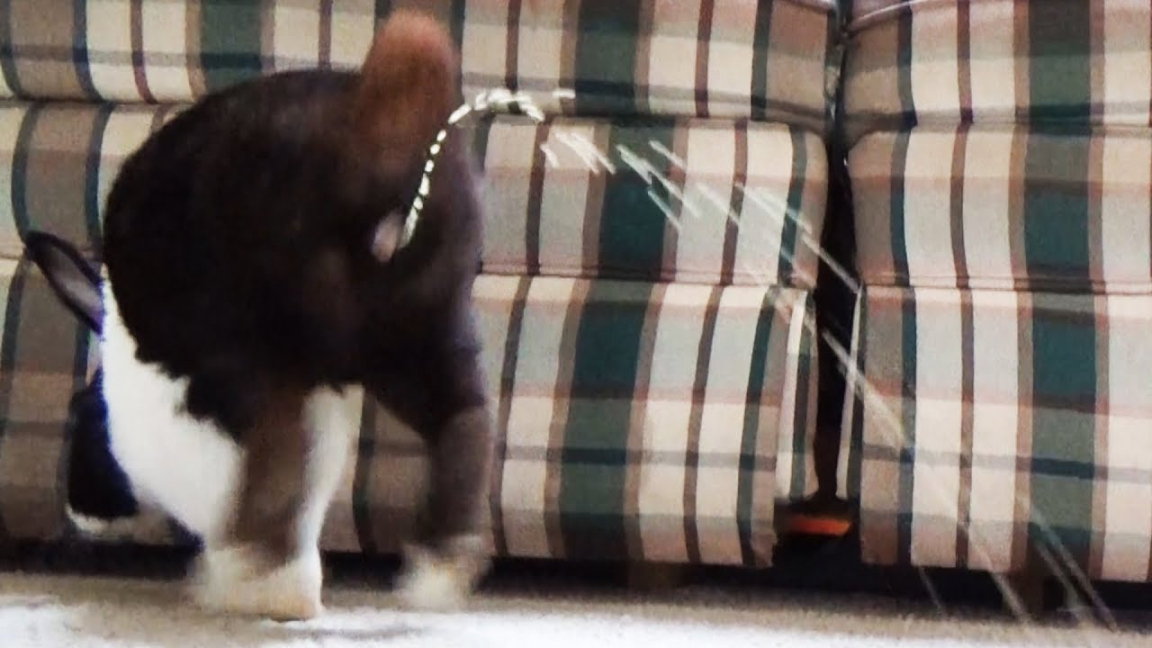What Does Male Rabbit Spray Look Like?
Male rabbits, also known as bucks, have a unique way of marking their territory and communicating with other rabbits. One common behavior that male rabbits display is spraying, which is the act of releasing a strong-smelling liquid from their anal glands. This behavior is not only a way for bucks to mark their territory but also a way to attract females during mating season.

What is Rabbit Spray?
Rabbit spray is a liquid substance that is released by male rabbits through their anal glands. This spray serves several purposes, including marking territory, communicating with other rabbits, and attracting potential mates. The spray has a distinct odor that other rabbits can detect, and it can linger in the environment for a considerable amount of time.
How Does Rabbit Spray Look Like?
Rabbit spray is a liquid that is typically yellowish or brownish in color. It has a strong odor that is often described as musky or pungent. The consistency of the spray can vary, ranging from watery to slightly thicker depending on the individual rabbit.
When a male rabbit sprays, the liquid is released in a fine mist or stream from their anal glands. The spray can reach several feet away, allowing the rabbit to mark its territory effectively.
Why Do Male Rabbits Spray?
Male rabbits spray primarily to mark their territory and establish dominance. By releasing their scent, bucks can communicate with other rabbits and establish boundaries. This behavior is particularly common during mating season when males are competing for the attention of females.
Rabbit spray also serves as a way to attract potential mates. The strong odor emitted by the spray can act as a pheromone, signaling to female rabbits that a male is nearby and ready to mate. Additionally, spraying can be a response to stress or anxiety, as rabbits may use this behavior to assert control over their environment.
How Can I Prevent Male Rabbit Spraying?
If you have a male rabbit that is spraying excessively, there are several steps you can take to help prevent this behavior:
- Neuter your rabbit: Spaying or neutering your rabbit can significantly reduce or eliminate spraying behavior. The procedure helps to balance their hormones and reduces the urge to mark territory.
- Provide ample space: Ensuring that your rabbit has enough space to roam and establish its territory can help reduce spraying. A larger enclosure or supervised free-roaming time can make rabbits feel less compelled to mark their surroundings.
- Keep a clean environment: Regularly cleaning your rabbit’s enclosure, litter box, and surrounding areas can help discourage spraying. Removing any traces of their scent can reduce the need for them to mark.
- Provide mental stimulation: Keep your rabbit mentally engaged with toys, tunnels, and other enrichment activities. Providing mental stimulation can help reduce anxiety and stress, which are common triggers for spraying.
Frequently Asked Questions (FAQs)
1. Can female rabbits spray?
Yes, although less common, female rabbits can also spray. This behavior is usually seen in unspayed females, particularly during the mating season when they may spray to attract males or mark their territory.
2. Is rabbit spray harmful to humans?
Rabbit spray is not harmful to humans, but the odor can be quite strong and unpleasant. It is recommended to avoid direct contact with the spray, and if you do come into contact with it, wash your hands thoroughly afterward.
3. Is spraying behavior normal for rabbits?
Yes, spraying is a natural behavior for rabbits, especially males. It is their way of communicating and marking their territory. However, excessive or sudden spraying may indicate stress or a health issue, and it is advisable to consult a veterinarian in such cases.
4. Can spraying be a sign of aggression in rabbits?
While spraying is primarily a territorial behavior, it can also be a sign of aggression in rabbits. If a rabbit is spraying aggressively, it may be accompanied by other aggressive behaviors such as lunging, biting, or growling. In such cases, it is important to observe the rabbit’s overall behavior and consult a veterinarian or a rabbit behavior specialist.
Related Articles…
Copyright Notice:
This website utilizes images found online, all copyrights are retained by their original owners. If you would like an image removed, kindly contact us.